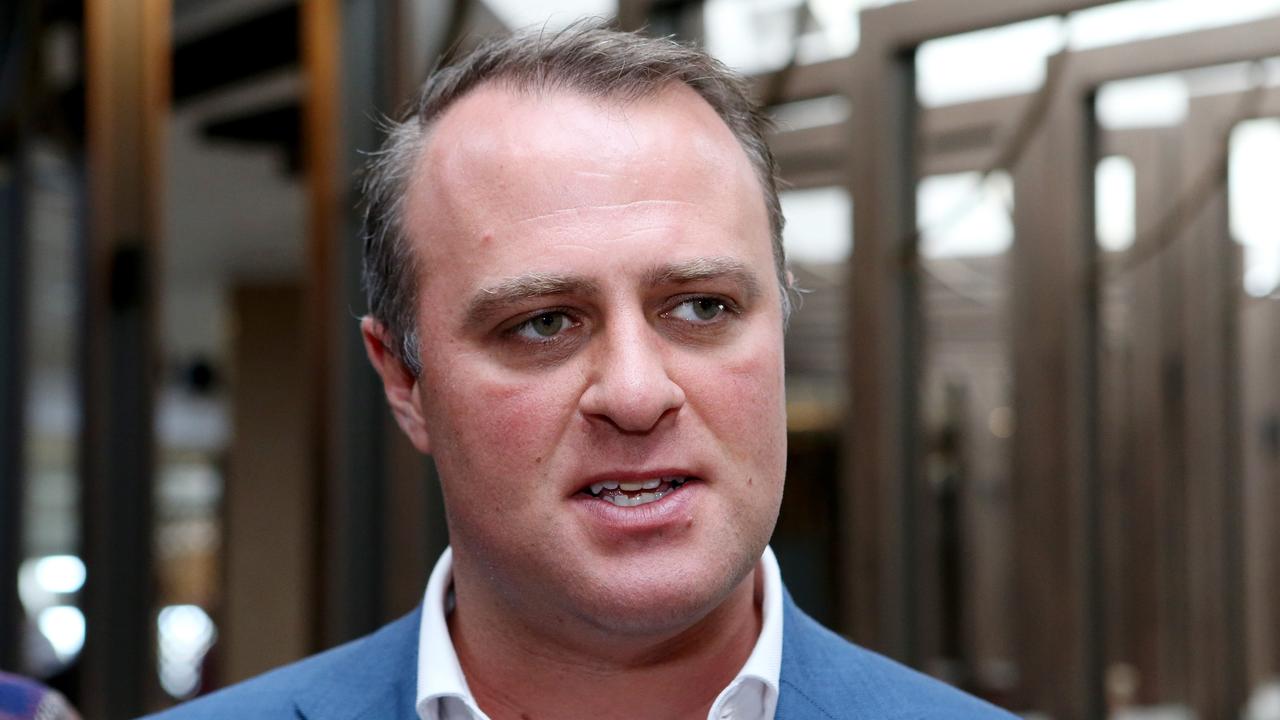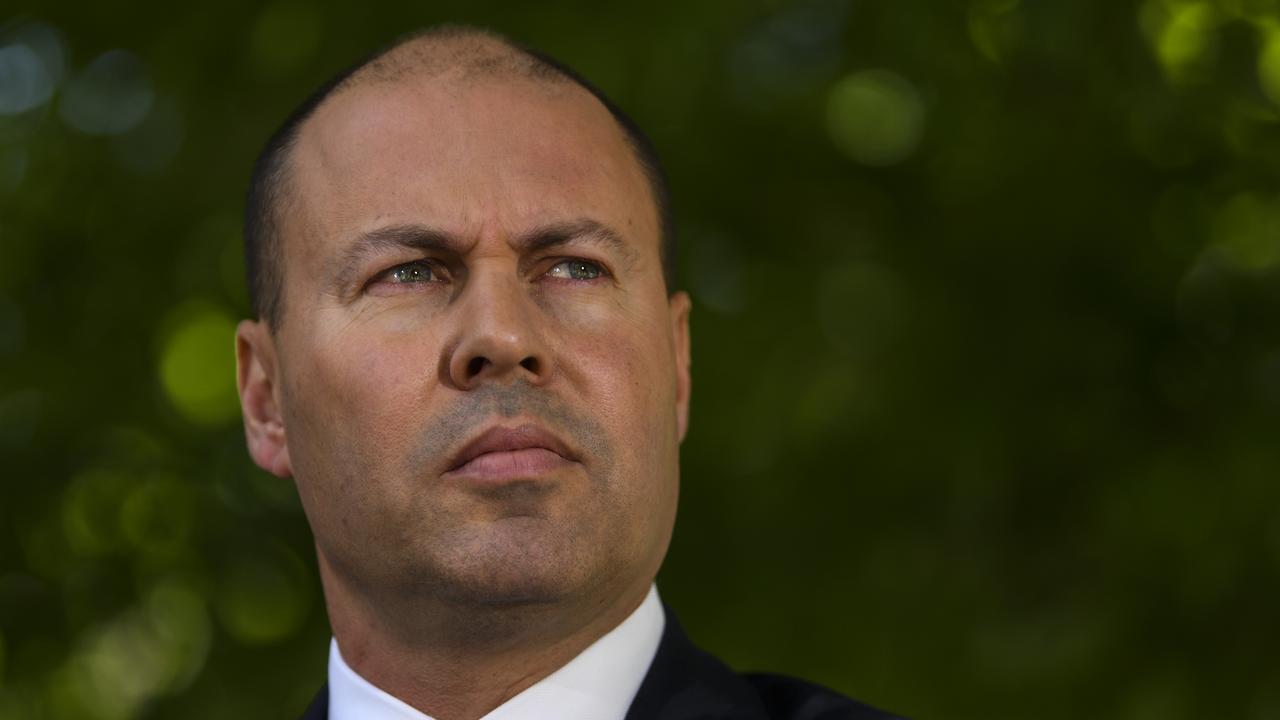Scott Morrison’s swipe at big business
Scott Morrison will today warn corporate Australia it urgently needs to address a collective reputational crisis.

Scott Morrison will today warn corporate Australia it urgently needs to address a collective reputational crisis within the community and start making the public case for the next phase of company cuts, to avoid a dampening effect on the economy.
In a sign of frustration within senior ranks of the government that the big end of town had left it to carry the argument in the tax debate, the Treasurer will tell industry and business leaders that they would become the casualties of their own inaction.
Marking a significant shift in his language, Mr Morrison will tell a banking conference in Sydney that Australians do not trust big business and that the government can no longer be left to argue alone the tax cut case for big business.
“Australians readily accept that supporting and backing in the efforts of small and medium sized businesses is good for our economy and good for jobs. However, they remain less convinced about the contributions of larger businesses,” Mr Morrison will say.
“I have raised consistently with large business representatives the need to address the broader collective reputation issues large businesses have with the Australian public that are being cynically exploited by an opportunistic Labor Party. If such issues are not addressed then the casualty will be growth, jobs and the public services that depend on a strong economy.”
Mr Morrison’s speech comes after securing Senate support for the first tranche of his company tax cuts — a reduction from 30 per cent to 27.5 per cent for businesses with an annual turnover of up to $50 million.
He is calling on chief executives to fight for the full plan of delivering a tax rate of 25 per cent for all businesses by 2026-27.
Mr Morrison’s speech suggests heightened political concern within the government that the tax cuts are not popular.
In a fortnight that has seen some of the country’s largest companies engage on social issues such as gay marriage, Mr Morrison’s remarks will be regarded as a veiled swipe at big business and industry associations, with the exception of a few such as Wesfarmers and Rio Tinto, that they had been “missing in action” since the Enterprise Tax Plan was first announced in last year’s budget. This had allowed Labor, the unions and fringe groups such as GetUp! to mount a strong, populist campaign against them.
The comparison has been made with the campaign mounted by corporate America to sell the case for US President Donald Trump’s planned cuts to federal taxes from 30 per cent to 15 per cent — a move that would shift the US from one of the highest business-taxing nations within the OECD to the lowest.
US manufacturers and tech companies have been at the forefront of the campaign to convince Americans of the need for company tax relief, arguing that the repatriation of profits parked offshore would lead to the creation of thousands of domestic jobs.
“Business has a critical role to play in demonstrating to the Australian people that as their business grows, their employees will benefit,” Mr Morrison will say. “And that job starts with the conversations they have in their own businesses. We know that for Australians to have secure jobs and better wages, all our businesses need to grow and succeed. That is why we put our full enterprise tax plan in our budget, we took it to an election, we won the election, we put the legislation in the parliament and secured far more than our critics believed we would. But this task cannot be pursued by the government in isolation.”
The Treasurer’s remarks follow a clarion call from the banking industry’s new chief lobbyist, former Queensland Labor premier Anna Bligh, who told the same conference yesterday of a “profound and fundamental” shift in community trust when it comes to major institutions. “We all know that trust in our banking industry is in decline … and the (Australian Bankers Association) has done research that confirms that here in Australia,” Ms Bligh said “This needs to be seen in a wider context in which trust in major institutions in Australia is falling.”
Australia Industry Group chief executive Innes Willox yesterday acknowledged that, unlike in the US, there had been “little debates” about company tax cuts in Australia but he blamed the government and the parliament.
“There is deep and endemic frustration about not just the pace of reform, but the nature of the debate in Australia, the inability to agree on even quite simple measures,” Mr Willox told the National Press Club. “We are just going to get left behind.
“We will be punished enormously for it, as a surge of capital flows out of Australia, and from elsewhere, into the United States.”
The crossbench last Friday voted in favour of the first tranche of the government’s tax plan.
The opposition has yet to confirm whether it would repeal the tax cuts passed last week if it won government at the next election due in 2019.
Opposition Treasury spokesman Chris Bowen has said that it would be decided by the shadow cabinet.
Having once supported a 25 per cent tax rate and calling for bipartisan support to achieve it, Opposition Leader Bill Shorten claims that the budget can no longer afford the $48 billion price tag of the government’s full plan.





To join the conversation, please log in. Don't have an account? Register
Join the conversation, you are commenting as Logout